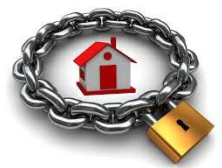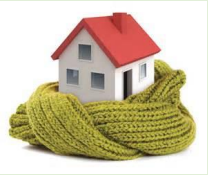Newsletter
Lay Dodd News - September 2019
4 September 2019

AN UPDATE ON RING-FENCING OF RESIDENTIAL RENTAL PROPERTY LOSSES
Earlier this year the IRD set out proposed tax changes that would preclude residential property investors from offsetting residential property losses against their other income (for example, salary/wages or business income).
The legislation enacting the ring-fencing rules received Royal Assent on 26 June 2019 and will apply retrospectively from the start of a person’s 2019/20 income year – so from 1 April 2019 for standard 31 March balance date taxpayers.
OVERVIEW
The rules now mean you cannot claim losses from rental properties against your other income. The loss will be held and carried forward and only be able to offset any future surplus on the rental properties.
The rules apply to “residential land” (in NZ or overseas), using the same definition of “residential land” that already exists for the bright-line test. This excludes land used predominantly as a business and farmland.
The rules do not apply to:
- The taxpayer’s main home;
- Property held by the taxpayer on revenue account (i.e. it is land held in dealing, development, subdivision, and building businesses or was bought with an intention of resale);
- Property held by non-close companies (a “close company” is broadly a company with 5 or fewer natural persons or trusts holding more than 50% of the total voting interests);
- Property already subject to the special mixed-use asset rules; and
- Property provided as employee accommodation (subject to special rules).
FURTHER POINTS TO NOTE
The ring-fencing rules will mean that taxpayers will now need to track losses and profits from their residential properties to ensure that any deductions are only being claimed as allowed. Taxpayers who have claimed residential property losses in the past to reduce their net income may now be subject to the provisional tax rules whereas previously they may not have been.
Anti Money Laundering and Countering Financing of Terrorism Act (“AML Act”)

As at 1 October 2018, we must comply with the AML Act. The law reflects NZ’s commitment to the international initiative to detect and tackle money laundering and the financing of terrorism.
This means that with each new instruction we must undertake a risk assessment of the matter. This is part of what the AML/CFT law calls “customer due diligence”.
If you are seeing us about company or trust business, we will need the information for the people associated with it (such as directors and shareholders, trustees and beneficiaries).
To help us complete customer due diligence we will need to obtain documents from you to verify your full name, date of birth and residential address such as your driver’s licence, passport or National ID Card, and proof of your address – such as a current bank statement, recent Utilities Bill (e.g. power, phone, water, Council rates) or recent statement issued by a Government Agency (e.g. IRD).
Because the law applies to everyone, we need to ask for the information even if you have been a client of ours for a long time.
RENTAL PROPERTIES: New laws now in effect

The healthy homes standards became law on 1 July 2019. Check what is required and what you need to do next. New minimum standards for rental properties to improve heating, insulation, ventilation and drainage, reduce moisture and stop draughts. New requirements come into effect in stages from 1 July 2019 to 1 July 2024. View an overview of the specific requirements.
https://www.business.govt.nz/https://www.business.govt.nz/news/healthy-homes-standards/n...
WHAT DO I NEED TO DO FIRST?
FROM 1 JULY 2019: Ceiling and underfloor insulation is required in all rental homes where it’s reasonably practicable, i.e. feasible, to install.
Landlords must begin keeping records that show compliance with any healthy homes standards that apply, or will apply, during the tenancy. Records can include:
- a Building Code compliance certificate;
- documents (e.g. receipts, reports or certificates), photographs and video recordings of professional work, evaluations or inspections that have been done;
- product manuals and / or other manufacturer’s information for installed products, e.g. heat pump.
https://www.tenancy.govt.nz/starting-a-tenancy/tenancy-agreements/
FROM 1 JULY 2020: Landlords must include a separately signed statement with each tenancy agreement that they will meet, or already meet, the healthy homes standards. This applies to any new, varied or renewed agreement. This statement is in addition to the existing requirement to include a separately signed insulation statement. Tenancy Services has guidance about tenancy agreements and statements on their site. They also offer templates you can use to get it done. https://www.tenancy.govt.nz/starting-a-tenancy/tenancy-agreements/
FROM 1 JULY 2021: Private landlords must ensure their rental properties comply with the healthy homes standards within 90 days of any new, or renewed tenancy. All boarding houses (except Housing NZ and Community Housing Provider boarding house tenancies) must comply with the healthy homes standards.
FROM 1 JULY 2023: All Housing New Zealand houses and registered Community Housing Provider houses must comply with the healthy homes standards.
FROM 1 JULY 2024: All rental homes must comply with the healthy homes standards.
INSURANCE FOR HOME-BASED BUSINESSES

If you work from home, household insurance may not be enough to cover your business. Here’s what to think about to ensure you’re protected.
Home insurance is offered by a provider on the assumption that the property is solely residential. If you run your business from home, start by informing your insurance provider or broker.
Some insurers will agree to insure a home when it’s partly used for running a business, but it depends on the level of risk for things like:
- The type of business (are you manufacturing goods, selling products, or just running an office);
- If customers come to the home (and if so, how many / how frequently);
- The kind of materials you have on the premises that might present an increased fire or burglary risk (e.g. flammable substances, highly desirable items);
- The kind of signage or advertising you have that might indicate the property could be targeted by theft
- The kind of security and / or fire protection you have to manage your risk.
ROOMS FOR LEASE
We have two rooms available for lease which include Board Room, Reception, administration services and a car park. Please contact Peter Clarke at peter@laydodd.co.nz or phone 09 623 7770 for more information.
